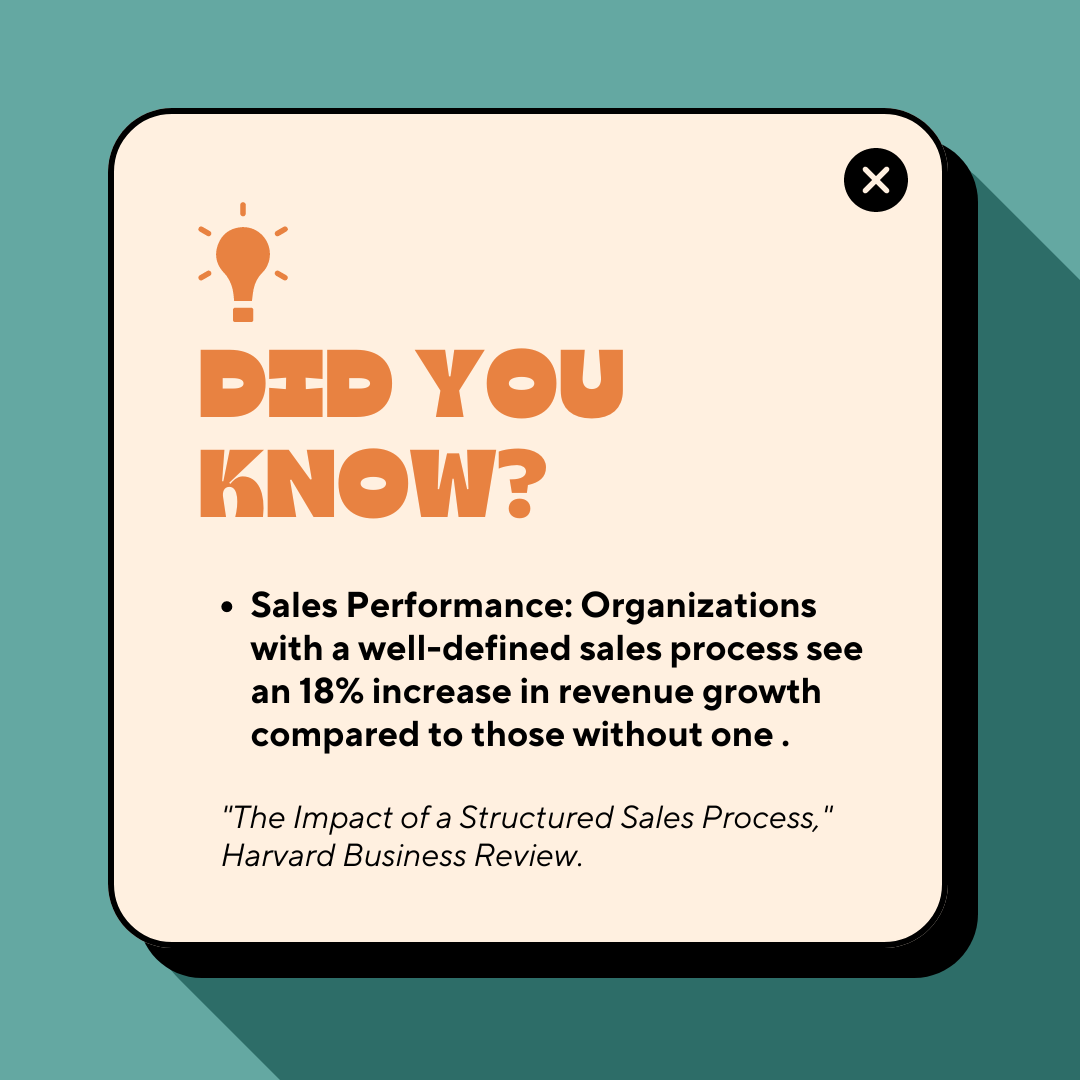Why a Sales Process is Like Baking Cookies?
The Secret Ingredient to Business Success
Subject: Why a Sales Process is Like Baking Cookies: The Secret Ingredient to Business Success
Happy Tuesday everyone!
One of the things that’s often overlooked in the “What makes a great sales team?” debate is Sales process. Simply put, this is the process and systems that allow the sales teams to function at a high level…. with consistency.
Let’s take a moment to imagine baking cookies. You gather your ingredients: flour, sugar, eggs, and of course, chocolate chips. Now, you could just throw everything into a bowl and hope for the best. But what happens if you forget to preheat the oven or add too much flour? You end up with a disaster instead of those perfect, golden-brown treats. Much like baking, having a sales process is crucial to ensuring your business yields sweet, consistent results every time.
Having a solid sales process in place is like having a reliable cookie recipe. It provides a step-by-step guide to achieving your desired outcome. Let’s explore why having a sales process is essential, using our cookie analogy to sprinkle in a bit of flavor and fun.
1. Consistency is Key: The Perfect Bake Every Time
Imagine baking cookies without a recipe. One batch might be crispy, another too chewy, and some might even taste like you accidentally added salt instead of sugar. Without a consistent sales process, your sales efforts can be just as unpredictable.
With a defined sales process, your team knows exactly what steps to follow from the first point of contact to closing the deal. This ensures that every prospect is handled with the same care and attention, leading to more predictable and reliable outcomes. It's like ensuring every cookie comes out of the oven perfectly baked and delicious.
2. Efficiency: Saving Time and Reducing Waste
When baking cookies, you don’t want to spend hours figuring out measurements or repeatedly testing the oven temperature. A sales process streamlines activities, eliminating wasted time and resources.
By following a structured process, your sales team can focus on what they do best—selling. They won’t waste time reinventing the wheel for each prospect. Instead, they can quickly identify needs, address objections, and move leads through the pipeline with ease. Efficiency in sales is like having pre-measured ingredients ready to go, speeding up the baking process without compromising quality.
3. Training and Onboarding: Getting New Bakers Up to Speed
Think about training someone new to bake cookies. Without a recipe, they’d be lost in a sea of flour and sugar. A clear sales process acts as a training manual for new team members, helping them understand each step and how to execute it effectively.
New sales reps can quickly get up to speed and start contributing to the team’s success, just as a new baker can start making perfect cookies with the right recipe. This reduces the learning curve and ensures everyone is aligned with your company’s best practices.
4. Quality Control: Ensuring Every Cookie is Delicious
When baking, you taste the dough and check the cookies to make sure they’re up to standard. Similarly, a sales process includes checkpoints to ensure quality control at each stage of the sale.
From initial contact to follow-up, having set procedures means that every interaction is monitored for quality. This way, you can ensure that your sales approach remains effective and that prospects are consistently receiving the best experience possible. Quality control in sales is like making sure no burnt cookies ever make it to the plate.
5. Data-Driven Decisions: Baking with Precision
Imagine trying to bake without knowing the exact measurements. The result would be wildly inconsistent. A sales process allows you to collect and analyze data at each stage, providing insights into what works and what doesn’t.
By tracking metrics like conversion rates, lead sources, and average deal size, you can refine your process and make data-driven decisions. This precision helps you tweak the “recipe” to maximize success, ensuring your sales efforts are as finely tuned as a well-tested cookie recipe.
6. Adapting to Change: From Chocolate Chip to Oatmeal Raisin
Even the best cookie recipes need updates now and then to keep up with changing tastes. Similarly, a good sales process is flexible and adaptable.
Market conditions, customer needs, and industry trends can shift, requiring you to adjust your approach. Having a well-documented process makes it easier to identify where changes are needed and implement them without disrupting your entire operation. This adaptability ensures that your sales strategy remains effective, no matter how the market evolves.
7. Building Trust: Ensuring Customers Keep Coming Back for More
Finally, think about why people love their favorite bakery. It’s not just the cookies; it’s the consistency and quality that builds trust and loyalty. A robust sales process ensures that your prospects and customers have a consistently positive experience.
When customers know they can count on your company to deliver value every time, they’re more likely to return and recommend you to others. This trust is built on the foundation of a reliable, repeatable sales process, much like the dependable deliciousness of your favorite cookies.
Conclusion: Baking Up Business Success
In conclusion, a well-defined sales process is like the perfect cookie recipe. It brings consistency, efficiency, quality control, and the ability to adapt to changing conditions. It helps train new team members and build trust with your customers, ultimately driving your business toward sweet success.
So, next time you’re in the kitchen or the office, remember the importance of having a process in place. Whether you’re baking cookies or closing deals, the right steps will lead to delicious results every time.



